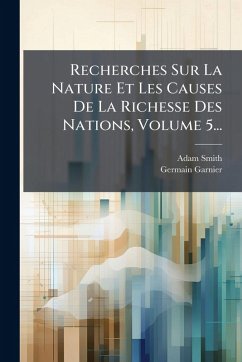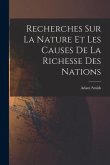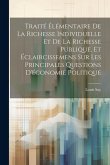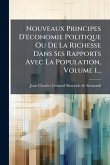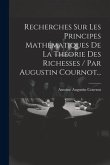Recherches Sur La Nature Et Les Causes De La Richesse Des Nations, Volume 5 est la traduction française du célèbre ouvrage d'Adam Smith, "An Inquiry into the Nature and Causes of the Wealth of Nations." Ce volume, faisant partie d'une édition plus large, explore en détail les principes fondamentaux de l'économie politique tels que Smith les a définis. Traduit et annoté par Germain Garnier, cette édition offre une perspective précieuse sur la réception et l'interprétation des idées de Smith en France à la fin du XVIIIe et au début du XIXe siècle. Les lecteurs intéressés par l'histoire de la pensée économique, ainsi que par l'influence de Smith sur le continent européen, trouveront ce volume particulièrement instructif. Il met en lumière les débats intellectuels de l'époque et la manière dont les concepts économiques étaient adaptés et appliqués dans un contexte différent. This work has been selected by scholars as being culturally important, and is part of the knowledge base of civilization as we know it. This work was reproduced from the original artifact, and remains as true to the original work as possible. Therefore, you will see the original copyright references, library stamps (as most of these works have been housed in our most important libraries around the world), and other notations in the work. This work is in the public domain in the United States of America, and possibly other nations. Within the United States, you may freely copy and distribute this work, as no entity (individual or corporate) has a copyright on the body of the work. As a reproduction of a historical artifact, this work may contain missing or blurred pages, poor pictures, errant marks, etc. Scholars believe, and we concur, that this work is important enough to be preserved, reproduced, and made generally available to the public. We appreciate your support of the preservation process, and thank you for being an important part of keeping this knowledge alive and relevant.
Bitte wählen Sie Ihr Anliegen aus.
Rechnungen
Retourenschein anfordern
Bestellstatus
Storno

